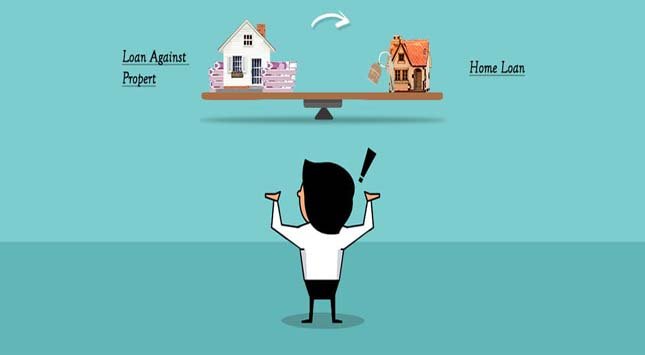Today there are a variety of options for a person to arrange funds to meet their financial necessities. Be it higher education, a marriage, or buying a new house, all of these are essential investments required to progress in life.
Fortunately, the modern financing industry offers a host of credit options to meet all these needs.
The two most popular types of credit products available to borrowers are a loan against property and a home loan. Both of these loans offer multiple similar features that can be advantageous to borrowers depending on his/her economic conditions.
Many individuals about to opt for a financing solution often get confused between opting for a loan against property or a home loan. Lack of clarity regarding the benefits of each adds to their troubles. So, here are the major differences between home loans and loans against property.
How is a Home Loan Different from a Loan Against Property?
In a home loan, the lender offers a certain amount of credit to a borrower specifically to buy a home. There are multiple types of home loans depending on the end-use of the amount. The loan for house construction is different from a loan to a house from its owner. Thus, it doesn’t offer flexibility on-lent credit usage.
A loan against property in India allows the borrower to use the sanctioned loan amount in whichever way he/she requires. It’s granted against the borrower’s unmovable asset like a home or land.
Hence, it’s a secured loan where the borrower mortgages a property to his/her lender. Loan against property documents required include all valid papers to prove the borrower’s ownership of the mortgaged asset and other KYC documents.
The requirements of the documents are the basic thing for applying for a loan against property. Although there are several private, and public banks NBFCs, and lenders which provide loans against property the essential thing is to keep ready the documents that are required.
Additionally, NBFC offers exciting features and benefits with its mortgage loans. Such advances come with pre-approved offers that reduce the loan sanctioning time and simplify the process. These offers are valid on home loans, personal loans, business loans, wedding loans, education loans, and much more. Just provide your basic details to know your pre-approved offer.
The two types of loans are different from each other in every aspect.
Home Loan Vs Loan Against Property
1. Interest Rate
Before applying for a loan always check the interest rate of the loan to which you are going to apply. After a successful comparison between these two loans apply for the loan. Home loans are offered at a lower interest rate when compared to loans against property.
Hence, if you are eligible for a home loan, it’s smart to go for it. However, loan against property eligibility criteria is less stringent. So, if your credit score is an issue, a loan against property is your best bet.
2. Loan Quantum
Lenders generally grant a higher LTV on home loans. One can avail of a loan amount as high as up to 90% of the property value with a home loan. Whereas, a loan against property grants a borrower around 70% of the value of the mortgaged property. Hence, we can say that a loan against property is better than a home loan.
3. Loan Tenor
Tenors for secured loans are significantly higher compared to other types of loans. Loan against property tenor can also be considered long-term. Home loan tenors can be slightly higher than that of loan against property, going as high as 30 years.
4. Tax Benefits
A loan against property doesn’t directly offer assured benefits, whereas home loans can help you save significantly on tax. A borrower can claim two tax benefits when he/she takes a home loan, under Section 80Cand Section 24(b) of the IT Act. Section 80C offers tax exemptions on the principal amount paid of up to Rs. 1.5 Lakh from the taxable income per year.
Section 24(b) offers tax exemptions on the total interest paid of up to Rs. 2 Lakh from the taxable income per year. If you want to avail these tax benefits with a loan against property, you are required to invest the loan as an investment toward the residential property.
Tax benefits on loans against property depend on the borrowed money’s ultimate usage. If one uses the amount for business expansion, then he/she can claim the paid interest and incidental costs under Section 37(1) of the Income Tax. These are some points that reveal not to get confused between a Home loan vs a loan against property.
Some loan against property features like easy loan disbursal, easy balance transfer facility, easy approval upon furnishing valid documents, etc. make it useful for those with ownership of immovable assets.
It’s also one of the 5 ways to effectively repay your existing loan. If a borrower’s objective is to use the loan money for house construction, then a home loan is the best-suited credit product.
You May Like to Read: Ways to Raise Funds Quickly

